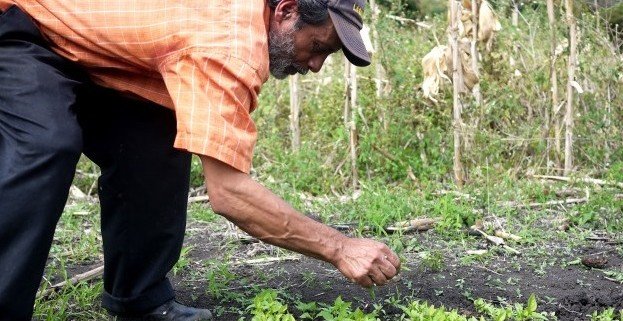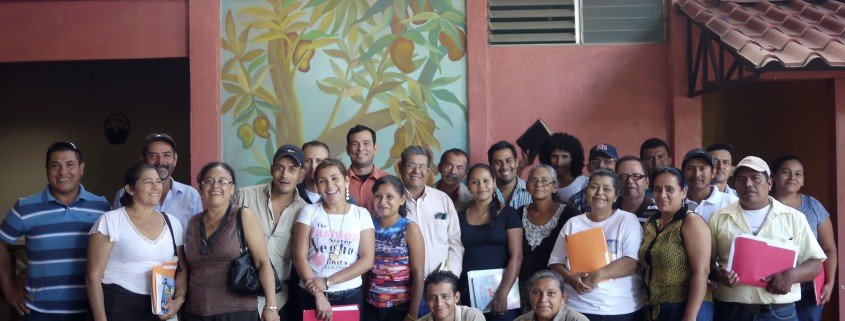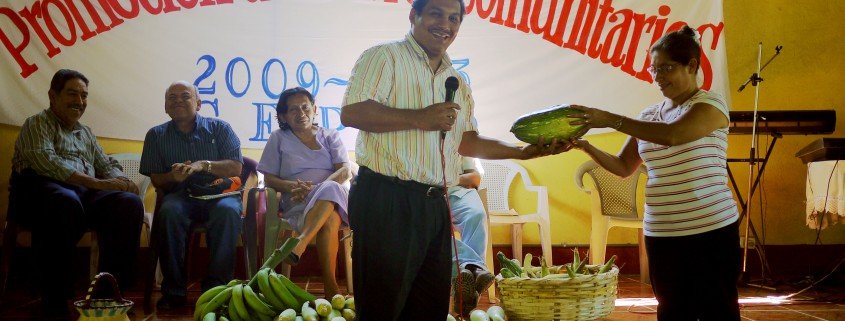Polvazal’s 42 families see every day as a new chance. They work the land, travel to the river for water and make sure their children attend school. The next five years CEPAD will accompany this community to help them harness their full potential.
Sonia Maria Esteban Gonzalez, a 33-year-old community leader and mother of three teenagers, uses tires as pots for different vegetables — but they are mostly empty this year. She says the community’s biggest challenges are adjusting their agricultural practices to account for increasingly dry years and developing a community organizational structure that will allow them to pursue big goals, like getting a better well in the community. Despite Polvazal’s many challenges, Sonia and others are optimistic.
“I have seen what has happened in the communities nearby, they have learned so much and life has improved a lot,” Sonia said. “I know that we can see similar progress here because people are ready to work hard and take it seriously.”
For the last five-year cycle ending this year, Polvazal was a control community in the Jinotepe region. CEPAD visited with leaders there regularly but didn’t implement programs directly. This made it possible to see the changes in communities working with CEPAD compared to those that weren’t. After the experience, Sonia and other community leaders are ready to get started and plan to look to leaders in nearby communities for advice.
“We appreciate CEPAD isn’t here just to help one person or bring supplies, it’s about working for the whole community and region,” Sonia said. “The communities in this area are friends and help each other.”
The community had no May harvest this year because of drought, and many people had weak September harvests because of continued water shortage and lack of seeds. The community is also concerned about deforestation, which CEPAD will help address by providing seedlings and training. CEPAD couldn’t be coming at a better time, Sonia said.






